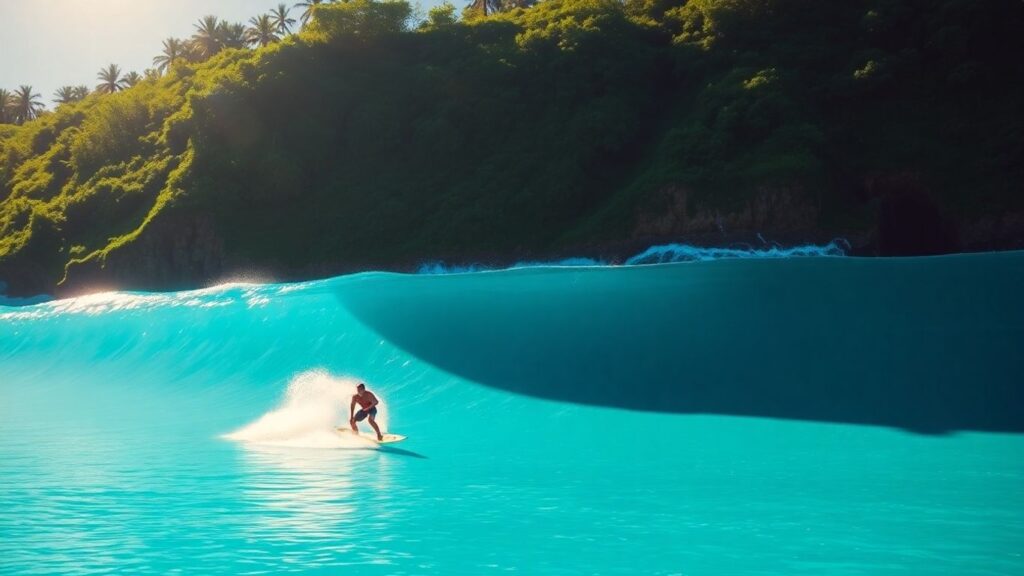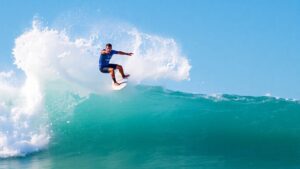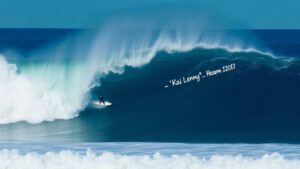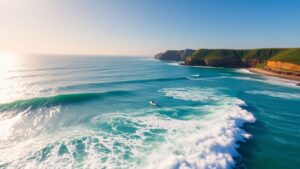The surf park industry is experiencing a surge of activity, with new projects, technological advancements, and business updates emerging across the United States. From established resorts refining their operations to ambitious new ventures seeking approval, the dream of accessible, high-quality surfing is rapidly becoming a reality in landlocked areas.
Key Takeaways
- Surf park development is expanding nationwide, with projects in various stages from planning to operation.
- Wave technology continues to evolve, focusing on flexibility, efficiency, and performance.
- Economic impact and community integration are key considerations for new surf park developments.
- Legal and regulatory challenges can impact the realization of these ambitious projects.
New Projects and Expansions
Boca Raton, Florida, is considering a $60 million surf park project that aims to bring significant economic benefits, including an estimated $30 million boost and 100 permanent jobs. Developers are proposing a 99-year lease on 20 acres of public land with a revenue-sharing agreement. While the project has garnered strong support, some local residents have voiced concerns about potential traffic and noise.
In Mesa, Arizona, Cannon Beach, a 37-acre mixed-use development featuring a 2-acre surf lagoon called Revel Surf, is celebrating its progress with a community block party. The development aims to be an economic driver for the city, projecting a $643 million impact over 20 years. The project emphasizes unique, local tenants over national chains and aims to create a vibrant community hub.
Technological Advancements
Surf Loch, a company with nearly four decades of experience in wave technology, is at the forefront of innovation. Founder Tom Lochtefeld highlights the company’s focus on flexibility, allowing their scalable and energy-efficient wave systems to be adapted for various sites and budgets, from urban canals to retrofitted waterparks. Surf Loch is continuously working to lower costs, reduce energy requirements, and improve wave performance, while also offering custom pool designs to meet diverse developer needs.
Operational Realities and Challenges
Lost Shore Surf Resort, a project that has been years in the making, is now operational. Andy Hadden, a key figure in the resort’s development, shared insights into the transition from planning to daily operations, emphasizing the hard work required to make a dream a reality. The journey has involved navigating complex planning processes and now focuses on sustained success.
However, not all surf park plans come to fruition without hurdles. In Anoka, Minnesota, a proposed whitewater surf park faces a significant challenge due to a lawsuit filed by Anoka County against the Minnesota Department of Transportation. The lawsuit claims that the state’s plan to redirect transportation funds for the surf park project violates the state’s Constitution, potentially jeopardizing the $55 million project and setting a precedent for how public funds can be allocated.
Sources
- Lost Shore Surf Resort Business: Andy Hadden Gives Update, Wave Pool Mag.
- New surf park could be coming to this city, WPTV.
- Gilbert man slates party at his Mesa surf park | News, gilbertsunnews.com.
- As the Surf Park Industry Evolves, Surf Loch Continues Its Record of Impressive Wave Technology, Surf Park Central.
- Lawsuit filed against MnDOT may wipe out funding plan for whitewater surf park, CBS News.








